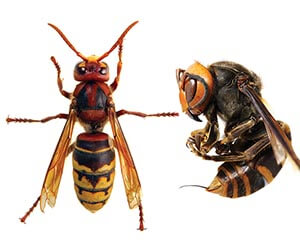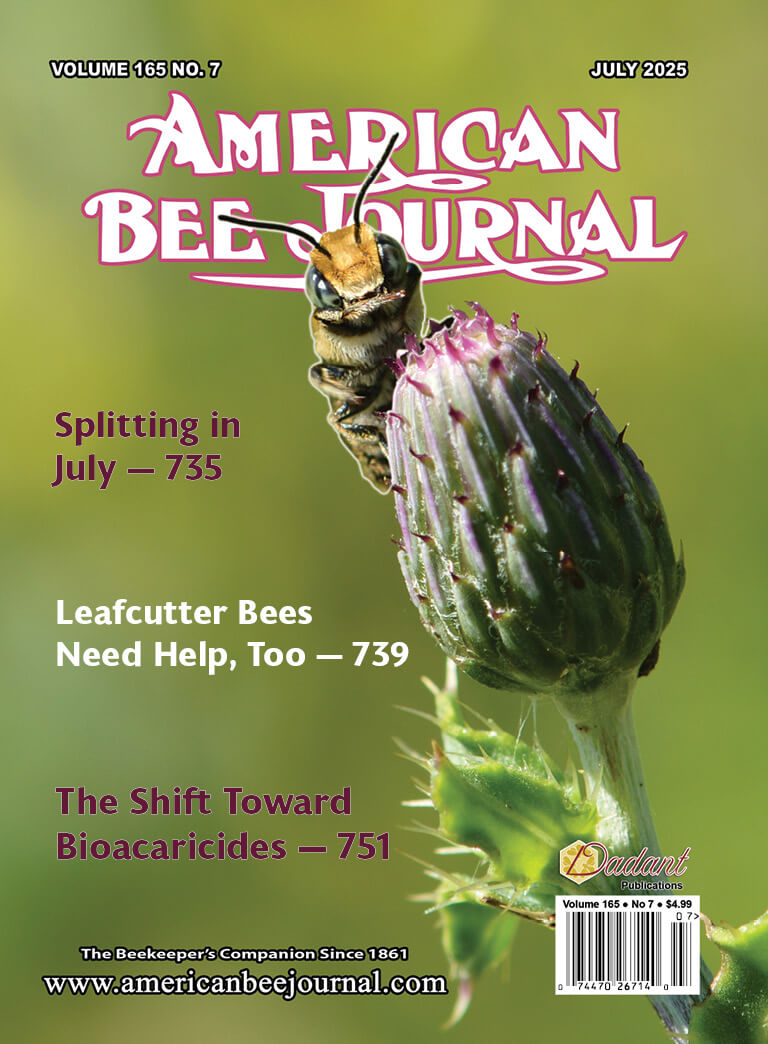
Georgia Hornets — Not Asian but European
Thank you for printing my last letter (April 2020). I was able to have a bit of research done in regards to the wasps in my area. It was not V. mandarinia I battled that day, but Vespa crabro, the European Hornet. Very similar, but with brighter, more wasp-like markings. The small amount of research sent to me stated that V. crabro is a little bigger than the Asian Giant Hornet, has the same diet, but unlike V. mandarinia will also fly at night. I apologize for my hasty letter … should have tried to check it out first.
Kane M.
Macon, Georgia
Scientific Beekeeping in Book Form?
To Randy Oliver:
Have you ever considered getting all of your articles that have appeared in ABJ over the years, from the very first article to the present, published in book form?
I don’t know how many other beekeepers feel this way, but your articles are one of the top reasons that motivate me to renew my subscription to ABJ every time it wants to expire, and I believe a book with all your articles in it would be a valuable resource (to me, at least).
I am Amish and have no internet or any other such high-tech device and therefore cannot visit scientificbeekeeping.com and read up on articles from the past, before subscribing to ABJ in 2016. Of course, I also like to see articles on queen rearing, nuc making, what works best to keep bees productive, etc., that other authors have provided, such as Tina Sebestyen, Jamie Ellis, Ray Nabors and others.
Thanks in advance.
Benjamin Hershberger
Caneyville, Kentucky
Randy responds:
Thanks Benjamin,
My articles are essentially my notes for a planned book. I’ve got a couple of more subjects to write articles on, and then plan to compile and edit them down to one or more books. For what it’s worth, all my articles at my website are printer friendly — you could have a friend print them all off for you. I hope to get going on the book soon, since I’m not getting any younger!
Happy beekeeping!
Randy
Enabling the Pesticide Companies
I was a bit surprised at the message conveyed after reading Alison McAfee’s article, “Have Honey Bee Researchers Really Been Corrupted by Industry Dollars?” in the April 2020 issue. In her article, she concluded how she would take the 1 million dollar research monies from Bayer, claiming it would result in “doing good science and training good scientists,” and would be “worth growing the thick skin”… the latter reference owing to the fact that the research programs of bee scientists that accept such monies from big agribusiness companies have come under scrutiny of late. In her article, she mentions various bee scientists who claim their research is unbiased and unaffected by the chemical companies, and if the chemical companies are willing to provide funding for their labs, then they should take advantage of this situation given pressures by the scientist’s research institutions.
Call me old fashioned and naive, but I don’t think cozying up to the big agrochemical companies, despite the claims made in her article, are where bee scientists should be. It appears to be a “cop out” of the highest degree and raises serious questions: For example, aside from the people mentioned in her article, how do we know other bee scientists are as scrupulous? How will bee research be affected and findings implemented if you have scrupulous scientists posting one thing, and unscrupulous ones posting another? What assurances do you have that the chemical companies won’t use your data erroneously, and what effective recourse do you have if they should do so? What if the agrochemical companies keep offering funding for varroa research, pushing an agenda that excludes pesticide research? Will we ever get at meaningful information regarding pesticide effects on bees?
This kind of relationship between bee science and pesticide companies will only open a can of “wax worms” that will embroil researchers for years to come. Let’s be honest here, the two factions are completely at odds with each other: The chemical companies need to produce serious pesticides in order to make money, and bee scientists are working hard to identify various bee mortality factors and their interactions, which includes these dangerous pesticides. How could the two be tied financially in good spirit? I also don’t buy the comments that chemical corporations are trying to be “good citizens,” as their historical track record proves otherwise. The fact that Scott-Dupree admitted that “she could have taken some money as salary,” but she didn’t, suggests that the temptation is there for young scientists to potentially “sell out,” possibly skewing results in order to get more funding, and so on … see where this could lead us?
Maybe instead of growing “thick skin” in dealing with the scrutiny bee scientists have to face by accepting funding from the chemical companies, they ought to develop “ironclad armor” to resist this temptation, and come up with other sources of funding that are not in direct conflict with the mission they are trying to accomplish. I don’t believe any agrochemical company should have a “seat at the table” when the health of honey bees is on the agenda. Would you want a mosquito at the table when trying to do effective malaria research?
Joe Conti
Colbert, Georgia
Ali responds:
Hello Joe,
Thanks for starting this discussion — I think it’s an important one to have, and there is a lot of grey space, here.
I don’t think that taking money from Bayer is “cozying up” to them: It is taking their money, and using it to broaden our knowledge, improve our technology, and support our trainees.
However, individual biases do exist, and readers are right to be …


